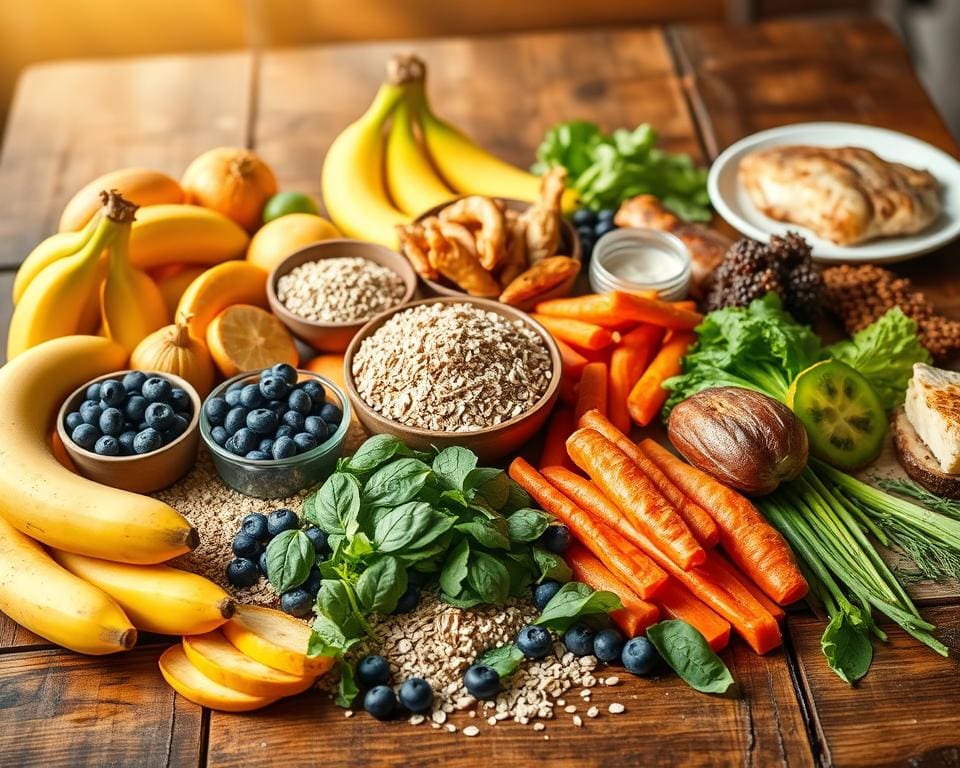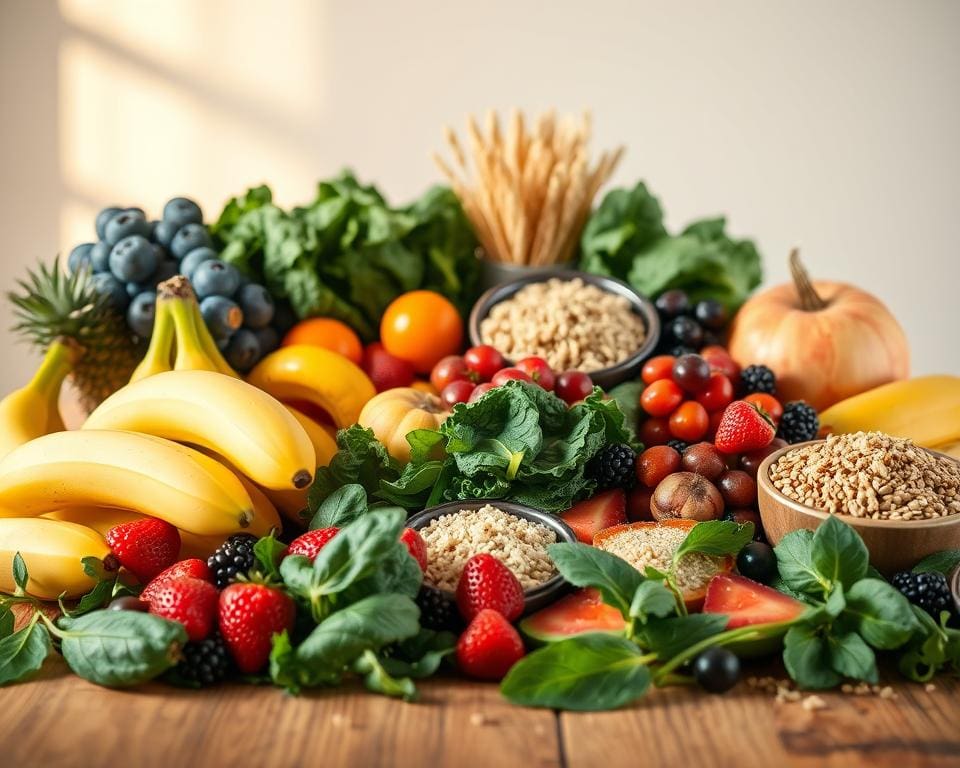Gastroesophageal reflux disease, commonly referred to as GERD, can significantly impact one’s quality of life through discomfort and complications associated with acid reflux. Understanding what foods are good for GERD is critical for those seeking relief. A well-structured Gerd diet not only helps in managing symptoms but also empowers individuals to make informed dietary choices. Recent studies illustrate that certain foods can either alleviate or exacerbate GERD symptoms, making it essential to be knowledgeable about an appropriate acid reflux diet. By prioritising a diet that aligns with GERD-friendly principles, individuals can embark on a journey toward improved wellbeing.
The Importance of a GERD Diet
A well-structured Gerd Diet is crucial for anyone dealing with acid reflux. Choosing the right foods can dramatically influence symptom severity, leading to a more comfortable lifestyle. Understanding how different dietary choices impact the digestive system is paramount. The right Gerd Nutrition can enhance digestive health and significantly decrease the risk of reflux episodes.
Scientific studies indicate that a personalised approach to food intake can yield remarkable results. Selecting foods that help Gerd can pave the way for fewer flare-ups and better overall management of the condition. Regular consultation with healthcare professionals ensures a tailored dietary plan that meets individual needs.

This level of commitment and awareness towards your diet will not only alleviate discomfort but also empower you to take control of your health.
Identifying Gerd Friendly Foods
Understanding and recognising Gerd friendly foods is vital for managing symptoms effectively. Certain categories of foods can provide relief and support digestive health while helping to mitigate discomfort. This section highlights a range of options to consider when wondering what foods are good for Gerd.
Low-Acidity Fruits
Fruits can play a significant role in a Gerd-friendly diet. Low-acidity fruits such as bananas, melons, and apples are excellent choices. These fruits are gentle on the stomach and can help soothe the lining of the gastrointestinal tract, promoting comfort without the unpleasant sting of acidity. Incorporating these fruits into snacks or meals provides a refreshing and nutritious option for anyone aiming to manage Gerd symptoms.
Vegetables to Include
Vegetables are another essential component of Gerd friendly foods. Leafy greens like spinach, broccoli, and kale are not only rich in vital nutrients but also low in acidity, making them beneficial for anyone dealing with acid reflux. Including these vegetables in daily meals can enhance nutritional intake while mitigating the risks of triggering symptoms. They can be easily sautéed, steamed, or added to salads for a healthy boost.
What Foods Are Good For Gerd
Exploring the realm of What Foods Are Good For Gerd leads to delicious and healthful choices that can help manage symptoms effectively. A focus on gut health is essential for those grappling with GERD. Foods such as oatmeal rank highly due to their soluble fibre, which can soothe the digestive tract and minimise irritation.
Non-citrus fruits, including bananas and apples, provide a sweet option while avoiding acidity. Lean meats, like chicken and turkey, promise protein without the accompanying fats that can trigger reflux. Incorporating these items into meals represents a proactive step in embracing the Best Foods For Gerd.
Beyond these essentials, consider adding vegetables such as broccoli and spinach, which are kind to the stomach and packed with nutrients. Each meal becomes an opportunity to nourish the body, promote healing, and create a balanced diet tailored to individual needs.
Best Foods for Gerd and Acid Reflux
Finding the best foods for Gerd can significantly improve the quality of life for those dealing with acid reflux. Selecting nutrient-rich options promotes digestive health and mitigates uncomfortable symptoms. Whole grains and lean proteins stand out as excellent choices within this dietary framework.
Whole Grains and Fibre
Whole grains like brown rice and quinoa pack a nutritional punch. They are high in fibre, which supports healthy digestion. These foods that help Gerd by creating a more balanced stomach environment, reducing the chances of reflux. Including a variety of whole grains in meals can also keep you feeling full longer, making it easier to maintain a healthy weight, which is crucial for managing Gerd symptoms.
Lean Proteins for Comfort
Lean proteins such as chicken, turkey, and fish provide essential nutrients without overburdening the stomach. These options are less likely to trigger reflux and promote a feeling of comfort after a meal. When planning meals, opting for grilled or baked preparations rather than fried can further enhance the benefits of these proteins. Prioritising lean cuts ensures that meals remain satisfying while aligning with the best foods for Gerd.
Foods That Help Gerd Symptoms
Managing the discomfort of GERD requires a careful selection of foods that help Gerd symptoms. Incorporating probiotic-rich yoghurts and various fermented foods can prove beneficial. These options actively promote healthy gut bacteria, fostering an environment that contributes to improved digestive health and comfort.
Herbal teas, particularly ginger and chamomile, possess soothing properties that ease symptoms associated with GERD. These natural remedies not only provide relief but also add variety to your daily intake, enhancing overall Gerd nutrition. It is essential to consider these options as they can play a vital role in dietary management.
By integrating these beneficial foods into your routine, you pave the way for a healthier lifestyle while alleviating some of the discomfort caused by GERD. Consistent inclusion of foods that help Gerd empowers individuals to manage their symptoms more effectively while enjoying nourishing meals.
Foods To Avoid With Gerd
Understanding what foods to avoid is crucial for those managing GERD. Identifying common trigger foods allows individuals to minimise discomfort and maintain a better quality of life. Certain foods often lead to increased acidity in the stomach, which exacerbates symptoms.
Common Trigger Foods
Many foods can trigger GERD symptoms. This list highlights some of the most common offenders:
- Spicy dishes
- Fatty or fried foods
- Caffeine-rich beverages
- Carbonated drinks
- Chocolates
- Citrus fruits
Why Certain Foods Can Worsen Symptoms
Foods to avoid with GERD often contain high levels of acidity or fat. Spicy dishes and fried foods can irritate the stomach lining, while caffeinated beverages can relax the lower oesophageal sphincter, allowing acid to escape. Reducing intake of these common trigger foods can significantly lessen symptoms, while creating a personalised dietary plan can offer long-term relief.
Creating Gerd-Friendly Meals
Crafting Gerd-Friendly Meals can transform the way you approach your daily nutrition. With a focus on flavours and nutrients, it’s possible to enjoy delicious food while managing GERD symptoms. Creating dishes that are easy to prepare can help make meal times enjoyable and satisfying.
Breakfast Ideas for GERD Sufferers
Starting your day with the right breakfast is key. Consider oatmeal bowls topped with low-acidity fruits such as bananas or berries. These fruits add natural sweetness and essential vitamins without triggering discomfort. Smoothies made from spinach or kale blended with almond milk create a refreshing option. Incorporating ginger can provide soothing benefits while enhancing flavour.
Easy Lunch and Dinner Recipes
For easy lunch and dinner recipes, opt for simple stir-fries using lean proteins like chicken or turkey, paired with a variety of vegetables. Quinoa or brown rice can serve as a wholesome base, satisfying the need for whole grains in your diet. Try roasting sweet potatoes with herbs for an added flavour punch without acidity. Meal prep techniques can streamline your cooking process, allowing for stress-free mealtimes.
Maintaining Gerd Nutrition Through Variety
Embracing a variety of Gerd friendly foods is essential for meeting all your nutritional needs while managing GERD effectively. A diverse diet not only keeps your meals interesting but also ensures you receive the vital vitamins and minerals necessary for overall health. Integrating different food groups throughout the week can enhance your dietary experience and provide comprehensive nutrition tailored to your body’s requirements.
Meal planning is a strategic approach to maintaining Gerd nutrition. It’s beneficial to experiment with various recipes and flavour combinations, utilising seasonal produce and whole grains, which offer a wealth of healthy options. Incorporating legumes and lean proteins into your diet can also support your journey, fostering creativity in the kitchen and presenting opportunities to discover new favourites.
Ultimately, monitoring your Gerd friendly foods allows for an enjoyable and sustainable lifestyle change. As you explore this culinary adventure, aim for balance and variety, promoting better digestion and enhancing your well-being. By doing so, you set the stage for a healthier future while skillfully managing GERD.









